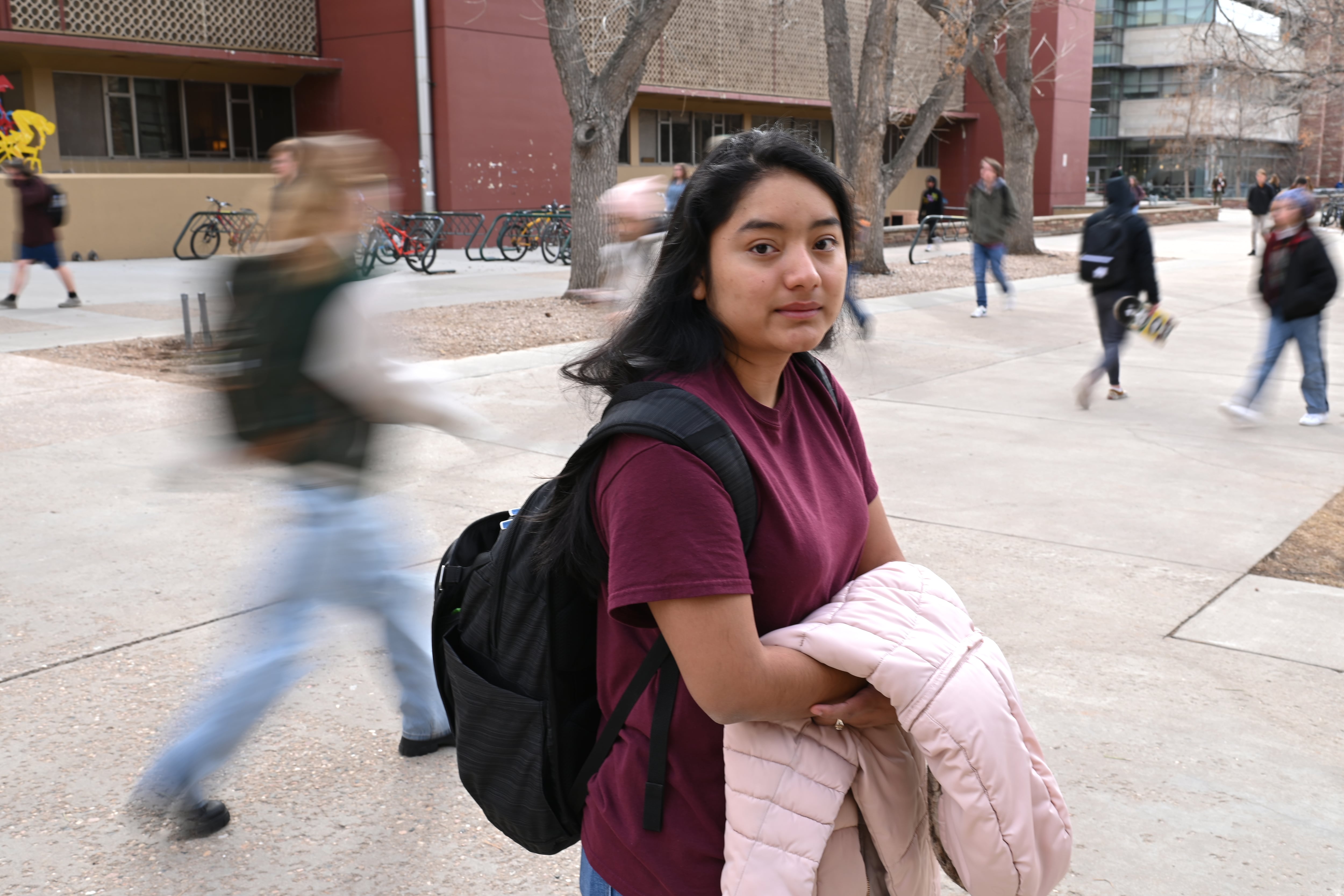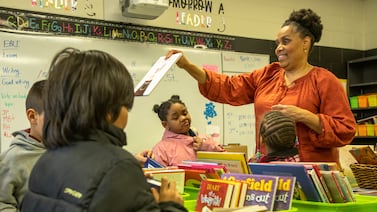Edna Chavez knows what it was like to flee her country alone as a teenager. She knows what it was like to make the risky and lonely trek north, to cross the border illegally and be held as an unaccompanied minor in shelters and detention centers.
But the 21-year-old student considers herself among a lucky few, because later she was adopted.
That support allowed her to pursue her education and put her on track for legal permanent residency.
Chavez has met many students with similar backgrounds, but who have no path to citizenship, who have limited education or work prospects, and who have endured discrimination. Chavez wants to do something about it.
“We have to make a radical change in our community, we can’t keep hiding,” Chavez said. “It’s time that someone does something. And that someone has to be me.”
Chavez is planning a rally, which she’s dubbed Students Stand Up for Immigration Reform, on March 11 at the State Capitol.
The rally was her idea, but she has gotten support from immigrant advocacy groups that are helping her coordinate. If enough students need transportation to the Capitol, she will look for ways to provide it.
She is also asking students to write letters and sign a petition asking Congress to renew the provisions of the Immigration Act of 1929. The act was intended to provide a way for immigrants who have been in the country for many years to earn legal status. But its required dates for entry haven’t been updated recently, so most immigrants do not qualify. Previous updates granted amnesty to some immigrants during the Reagan administration.
Updating the act would give many more immigrants a path to legal status and many more young people a way to pursue an education.
“What I really want is for all students to show up to demonstrate that we are better united,” Chavez said. “Together we are strong.”
Chavez is full of hope because she has already overcome so many barriers.
Back home in Guatemala, Chavez said she was fighting against men who tried to force her into prostitution. She felt unsafe and decided one day at age 17 to flee to the U.S. without telling her parents.
Her abusive father wouldn’t have helped, she feared. Even now, her relationship with him is strained.
After a long and dangerous journey, Chavez was confined for months in detention centers and later a shelter for unaccompanied minors. When she turned 18, she was removed from the youth shelter and sent back to a detention center. Then an advocate found a family willing to sponsor her. After she moved in with them, they formally adopted her.
When Chavez moved to Denver at age 18, she enrolled at GALS, a Denver charter school.
Back in Guatemala, she had been forced to drop out of school after second grade. When she started school in the U.S., she didn’t speak English. A year after enrolling in high school, the pandemic shut down school buildings. That meant she also was forced to learn technology on top of everything else so she could continue working toward her diploma online.
But she managed to graduate earlier than planned, last spring.
“Basically I knew nothing,” Chavez said. “I had a ton of obstacles, you could say that, but nothing stopped me from achieving what I had set out to achieve.”
Chavez applied to multiple universities, and was accepted at all but one. The one rejection didn’t deter her because after having visited the Colorado State University campus in Fort Collins, she knew that’s where she wanted to go.
“I felt like I belonged in that place,” she said.
She started college with a few credits she had earned while in high school. Now she’s working on a math degree with a concentration in actuarial sciences.
She said that being successful means having a good education, and then being able to give back to her community.
But she isn’t waiting to give back. She says she’s discovered a passion for helping others. Her mom back in Guatemala tells her it’s like she’s a new person.
Chavez tells her it’s because she is. Having time to spend on learning, instead of working all day, has allowed her to see the world through a different lens, she said.
“I have felt more safe. I have felt more valuable as a woman. I have felt truly fortunate to be in a country that can offer me safety,” Chavez said.
And helping others feel the most joy out of being in a place of safety matters to her.
“I’m doing it out of the love I have for the community,” Chavez said. “I’m doing it from the bottom of my heart.”
Yesenia Robles is a reporter for Chalkbeat Colorado covering K-12 school districts and multilingual education. Contact Yesenia at yrobles@chalkbeat.org.







